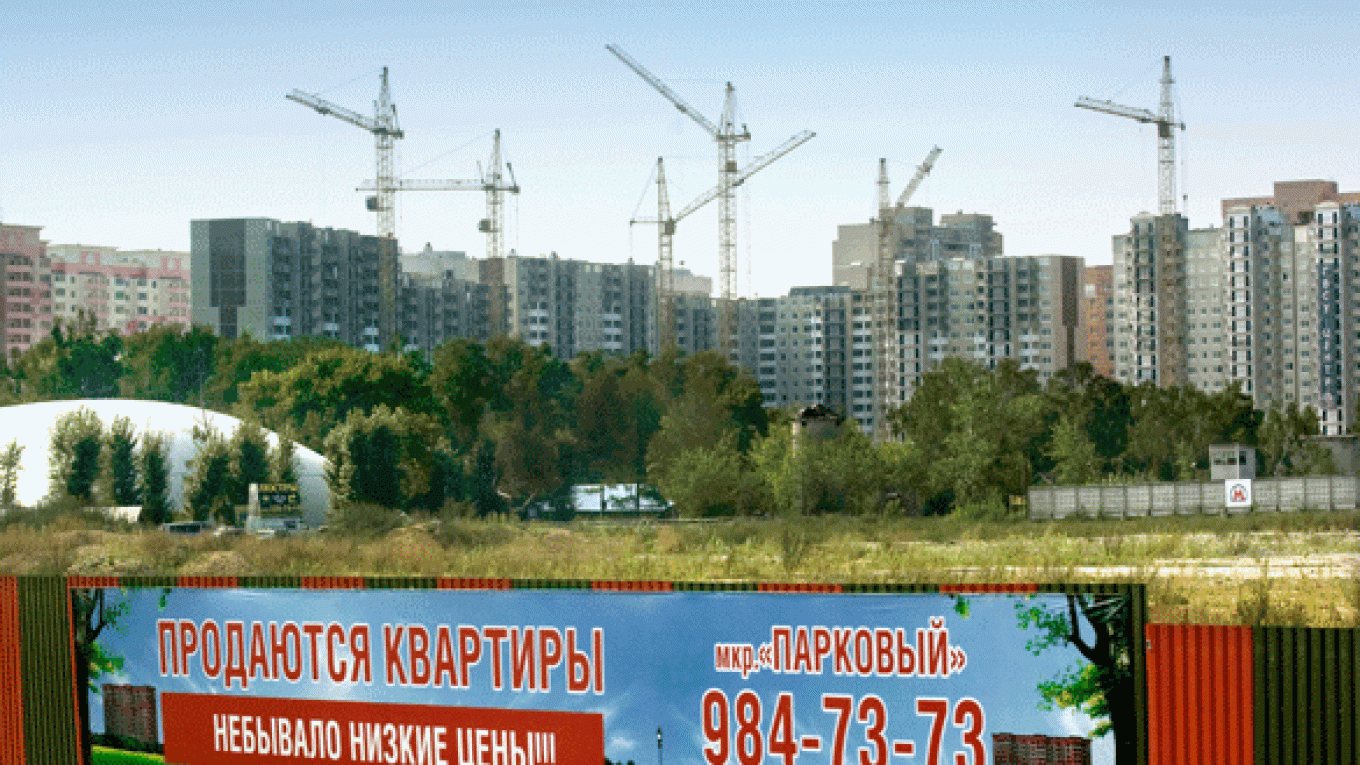Mayor Sergei Sobyanin's emphasis on developing social and transportation infrastructure over the housing market could lead to significant price increases for residential real estate in Moscow, according to a director of one of the city's largest realty agencies.
"In the upcoming year, year and a half, the price for apartments could increase as much as 20 to 30 percent," said Penny Lane's elite real estate director, Alexander Ziminsky.
Commemorating Sobyanin's first year in office, Penny Lane held a press conference late last week to highlight potential strains that the mayor's policies will place on the housing market in Moscow.
Other major policy changes since the ouster of former Mayor Yury Luzhkov include a ban on new construction in the Central Administrative District, a massive review of investment contracts, development of 70 kilometers of metro lines and the widening of the city's borders.
The ban on construction eliminated about 200 projects worth $35 billion. The projects had been expected to add 7 million square meters of developed properties to Moscow, a large portion of which had consisted of high-rise developments, Ziminsky said.
The undersupply of housing is a source of stress for the city's population, said Alexander Puzanov, general director at the Institute for Urban Economics.
According to the institute, at the beginning of 2011 the average living space per person in Moscow amounted to 18.7 square meters. In contrast, residents in Berlin, Munich and Vienna have an average of 35 to 40 square meters of personal space.
"To achieve international standards, the number of rooms should rise by almost 47 percent," Puzanov said. "We are currently facing a 7.4 million room deficit."
To combat this congestion, the city increased its size by 2.5 times, annexing 160,000 hectares of land. Administrative bodies are also expected to move to this area.
But Penny Lane's director for country real estate, Dmitry Tsvetkov, said no more than 20 percent of that land would be suitable for construction. The remainder of the land consists of nature reserves, as well as privately owned and unusable lands.
Tsvetkov does not believe that the creation of new districts, even with high-quality housing complexes, will decrease the price of apartments in districts such as Ostozhenka and Arbat or business-class properties requiring a well-connected transportation network.
The creation of new metro lines in the next five years will also aggravate prices in regions beyond the Moscow Ring Road, increasing apartment prices by a minimum of 10 percent to 20 percent, Ziminsky said.
In the best-case scenario, he said, more than 1 million square meters of elite and business-class housing will be built in 2012.
But in the event of a second wave of economic crisis and a drop in the price of oil, there will be a freeze in current projects, and prices will rise by about 10 percent to 15 percent due to inflation.
A Message from The Moscow Times:
Dear readers,
We are facing unprecedented challenges. Russia's Prosecutor General's Office has designated The Moscow Times as an "undesirable" organization, criminalizing our work and putting our staff at risk of prosecution. This follows our earlier unjust labeling as a "foreign agent."
These actions are direct attempts to silence independent journalism in Russia. The authorities claim our work "discredits the decisions of the Russian leadership." We see things differently: we strive to provide accurate, unbiased reporting on Russia.
We, the journalists of The Moscow Times, refuse to be silenced. But to continue our work, we need your help.
Your support, no matter how small, makes a world of difference. If you can, please support us monthly starting from just $2. It's quick to set up, and every contribution makes a significant impact.
By supporting The Moscow Times, you're defending open, independent journalism in the face of repression. Thank you for standing with us.
Remind me later.


